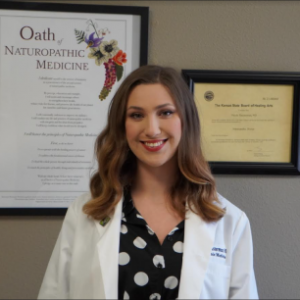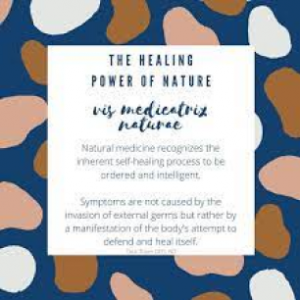Holistic medicine also recognizes that the body has an innate ability to heal itself, and seeks to support this process through natural and non-invasive treatments. This can include various practices, such as nutrition, exercise, acupuncture, herbal medicine, and mindfulness techniques. Overall, the principles of holistic medicine prioritize treating the whole person, rather than just individual symptoms or illnesses, to achieve optimal health and wellness. If you’re looking for a holistic doctor in Dallas, you can contact me.
Treating the Whole Person
Holistic medicine approaches health care by treating the whole person, rather than just focusing on a specific symptom or illness. This involves recognizing that a person’s physical, mental, emotional, and spiritual well-being are all interconnected and influence each other. Therefore, a holistic approach considers all of these aspects of a person’s health and lifestyle in developing a treatment plan. By addressing the underlying causes of health issues, rather than just their symptoms, holistic medicine aims to promote long-term health and wellness. Holistic treatments may include various practices, such as nutritional counseling, physical therapy, acupuncture, herbal medicine, and mind-body techniques like meditation and yoga. By treating the whole person, holistic medicine aims to support the body’s natural healing processes and promote overall health and well-being.
Explanation of treating the whole person in holistic medicine
Treating the whole person in holistic medicine involves taking a comprehensive approach to health care that considers all aspects of a person’s well-being. This includes not only physical symptoms, but also mental, emotional, and spiritual aspects of health. Holistic practitioners recognize that each individual is unique and that their health issues may be influenced by a variety of factors, including lifestyle, environment, and genetics. Rather than simply treating symptoms, holistic medicine seeks to understand the underlying causes of health problems and address them in a way that supports the body’s natural healing abilities. This may involve a combination of different treatments, including nutrition, exercise, natural remedies, and mind-body techniques. By treating the whole person, holistic medicine seeks to promote optimal health and well-being, rather than just addressing individual symptoms or conditions.
The importance of considering physical, mental, emotional, and spiritual well-being
Considering physical, mental, emotional, and spiritual well-being is essential for achieving overall health and wellness. These aspects of well-being are interconnected, and neglecting any one of them can lead to imbalances in the others. For example, stress, anxiety, or negative emotions can have a significant impact on our physical health, while physical ailments can lead to emotional and mental distress. By taking a holistic approach to our health, we can identify and address imbalances in all areas of our well-being. This can involve a variety of practices, such as regular exercise, mindfulness techniques, and holistic health care. By prioritizing our physical, mental, emotional, and spiritual well-being, we can improve our quality of life, achieve a sense of balance and harmony, and live more fulfilling lives.
Examples of how holistic practitioners address the whole person
Holistic practitioners address the whole person by taking a comprehensive approach to health care that considers all aspects of a person’s well-being. This approach can involve a variety of different practices, depending on the specific needs of the individual. For example, a holistic practitioner may provide nutritional counseling to address dietary imbalances that may be contributing to health issues. They may also recommend physical therapy or acupuncture to address physical symptoms, and mindfulness or meditation practices to help manage stress and promote mental and emotional well-being. Herbal remedies and other natural treatments may also be used to support the body’s natural healing abilities. Holistic practitioners prioritize understanding the underlying causes of a person’s health issues, rather than simply treating symptoms. By taking a whole-person approach to health care, they can promote optimal health and well-being and help individuals achieve a sense of balance and harmony in their lives.
Benefits of personalized treatment plans in holistic medicine
Personalized treatment plans are a hallmark of holistic medicine, and offer many benefits for patients. By taking a whole-person approach to health care, holistic practitioners can develop treatment plans that are tailored to the unique needs of each individual. This can involve considering a person’s medical history, lifestyle, and environmental factors to understand the underlying causes of their health issues. By addressing these underlying causes, rather than just treating symptoms, personalized treatment plans can lead to more effective and longer-lasting results. Additionally, by taking a holistic approach, treatment plans can address not only physical symptoms, but also mental, emotional, and spiritual well-being. This can help patients achieve a greater sense of balance and harmony in their lives, leading to improved overall health and well-being. By prioritizing personalized treatment plans, holistic medicine empowers individuals to take an active role in their own health care and achieve optimal wellness.
If you’re seeking optimal health and well-being, consider holistic approaches to health care. By addressing the whole person – including physical, mental, emotional, and spiritual well-being – holistic medicine can help you achieve a greater sense of balance and harmony in your life. Whether you’re dealing with a specific health issue or simply seeking to improve your overall wellness, a holistic practitioner can work with you to develop a personalized treatment plan that meets your unique needs. So why not take the first step towards a healthier, more fulfilling life? Consider seeking out a holistic practitioner in your area or incorporating holistic practices into your daily routine. Your body, mind, and spirit will thank you for it.






